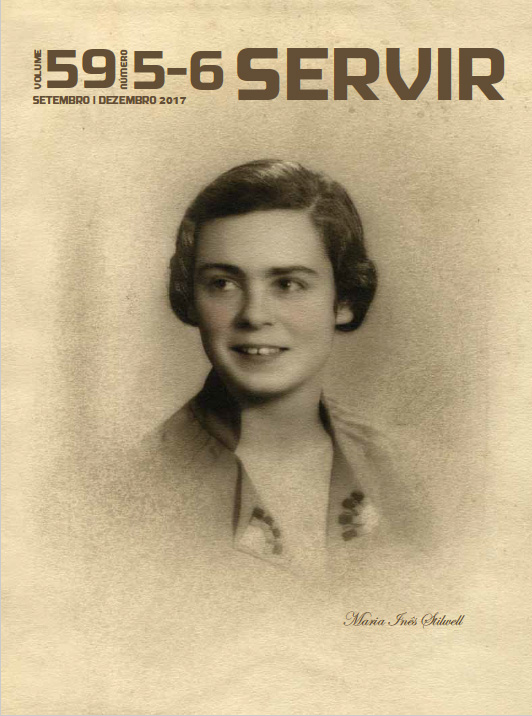Motivation for the work in nurses after transition from the model of hospital management
DOI:
https://doi.org/10.48492/servir025-6.23470Keywords:
Hospital administration, Motivation, Nursing, Intensive CareAbstract
This study was based on research developed at national level and international, on the repercussions of hospital management model in the motivation of nurses. It´s defined as to assess the motivational state of the nurses after the model of transition management. For this purpose was taken a sample of 18 nurses of a Intensive Care Unit.
In the data collection it was used a questionnaire with sociodemographic questions and motivation, which applied by suggestion of the Service, during an internship. The data were analyzed using descriptive statistics. The results suggest that for 88.9% of the sample model change management interfered in the working conditions and relations between the staff generating an environment of competitive between it and with little benefit to patients. For most of the nurses constitute disincentives to work order and orientations of the Administrative Council. Just 11.1% of for the development / professional formation, unknown the majority the change process and objectives of the same. The results seem to reflect fear, lack of knowledge and involvement of the nurses in the change process.
Downloads
References
Batista, A.A.V., Vieira, M.J., Cardoso, N.C.S. & Carvalho, G.R.P. (2005). Fatores de motivação e insatisfação no trabalho do enfermeiro. Revista da Escola de Enfermagem da USP, 39: 85-91. Acedido em http://www.scielo.br/pdf/reeusp/v39n1/a11v39n1
Batista, V.L.D, Santos, R.M.F, Santos, P.M.F. & Duarte, J.C. (2010). Satisfação dos Enfermeiros: es- tudo comparativo em dois Modelos de Gestão Hospitalar. Revista Referência. 2 (12), 57-69.
Bezerra, F. D.; Andrade, M. F. C.; Andrade, J. S; Vieira, M. J. & Pimentel, D. (2010). Motivação da equipe e estratégias motivacionais adotadas pelo enfermeiro. Rev. bras. enferm. 63 (1), Acedido em http://www.scielo.br/scielo.php?script=sci_arttex-t&pid=S0034-71672010000100006
Chiavenato, I. (1998). Recursos humanos. São Paulo: Atlas.
Cimbalista, S. & Volpato, M. (2002). O processo de motivação como incentivo à inovação nas organizações. Revista FAE, 5 (3), 75-86.
Ferreira, J.M.C., Neves, J. & Caetano, A. (2001). Manual de Psicossociologia das Organizações. Lisboa: Editora McGraw-Hill.
Frederico, M. (2005). Empenhamento organizacional de enfermeiros em hospitais com diferentes modelos de gestão: papel de variáveis de contexto. Revista Referência. 2 (1), 53-62.
Gardell, B. (1971). Alienation and mental health in the modern industrial environment. in L. Levi: Society Stress and disease, 1, Oxford: Oxford University Press, London, pp. 148-180.
Gardell, B. (1977). Autonomy and participation at work. “Society, Stress and Disease”, 1, Oxford: Oxford University Press.
Hunt, J. & Osborn, R. (2005). Fundamentos de Comportamento Organizacional. 2.ª Ed. Porto Alegre: Bookman.
Martins, M.C.A. (2003). Situações indutoras de stress no trabalho dos enfermeiros em ambiente hospitalar. Acedido em http://www.ipv.pt/millenium/millenium28/18.htm
Regato, V.C. (2005). Psicologia nas Organizações. Rio de Janeiro: Editora Rio.
Rego, A. & Cunha, M.P. (2003). A Essência da Liderança: Mudança x resultados x Integridade Teoria, prática, aplicações e exercícios de auto-avaliação. Lisboa: Editora RH.
Robbins, S.P. (2005). Comportamento organizacional. São Paulo: Pearson Prentice Hall.
Sekiou, L. (2015). Gestão dos Recursos Humanos. Lisboa: Instituto Piaget.
Tadim, A.P., Rodrigues, J.A.E., Dalsoquio, P., Guabiraba, Z.R. & Miranda, I.T.P. (2005). O conceito de motivação na teoria das relações humanas. Revista de Ciências Empresariais: 2 (1), 40-47. Acedido em http://www.maringamanagement.com.br/viewarticle.php?id=43
Tappen, R. (2005). Liderança e Administração em Enfermagem: Conceitos e Prática. 4.ª Ed. Loures: Lusociência.
Vergara, S. C. (2007). Gestão de Pessoas. 6.ed. São Paulo: Atlas.
Downloads
Published
How to Cite
Issue
Section
License
In order to promote the free circulation of knowledge, Servir is open access journal. All its content is available and protected under the Creative Commons license (CC BY 4.0).
The journal allows self-archiving in institutional repositories of all versions, which may become immediately available


